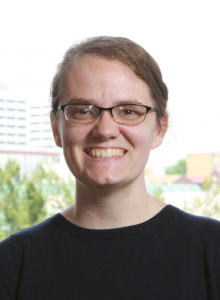3.0 Lunchtime Keynote: Neuromorphic Computing: Past, Present, and Future
Catherine Schuman, Oak Ridge National Laboratory, United States

Though neuromorphic systems were introduced decades ago, there has been a resurgence of interest in recent years due to the looming end of Moore's law, the end of Dennard scaling, and the tremendous success of AI and deep learning for a wide variety of applications. With this renewed interest, there is a diverse set of research ongoing in neuromorphic computing, ranging from novel hardware implementations, device and materials to the development of new training and learning algorithms. There are many potential advantages to neuromorphic systems that make them attractive in today’s computing landscape, including the potential for very low power, efficient hardware that can perform neural network computation. Though some compelling results have been demonstrated thus far that demonstrate these advantages, there is still significant opportunity for innovations in hardware, algorithms, and applications in neuromorphic computing. In this talk, a brief overview of the history of neuromorphic computing will be discussed, and a summary of the current state of research in the field will be presented. Finally, a list of key challenges, open questions, and opportunities for future research in neuromorphic computing will be enumerated.
Catherine (Katie) Schuman is a research scientist at Oak Ridge National Laboratory (ORNL). She received her Ph.D. in Computer Science from the University of Tennessee, where she completed her dissertation on the use of evolutionary algorithms to train spiking neural networks for neuromorphic systems. She is continuing her study of models and algorithms for neuromorphic computing at ORNL. Katie has a joint faculty appointment with the Department of Electrical Engineering and Computer Science at the University of Tennessee, where she co-leads the TENNLab neuromorphic research group. Katie has over 45 publications as well as six patents in the field of neuromorphic computing. Katie received the Department of Energy Early Career Award in 2019.


